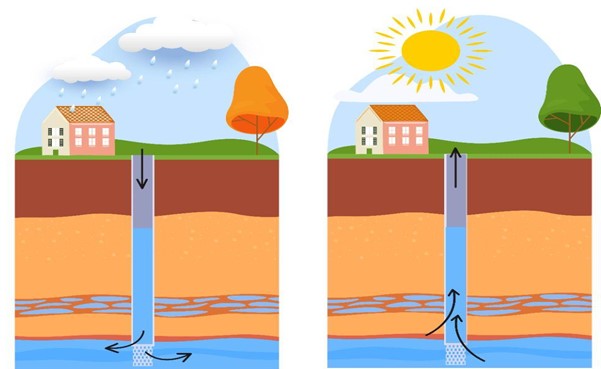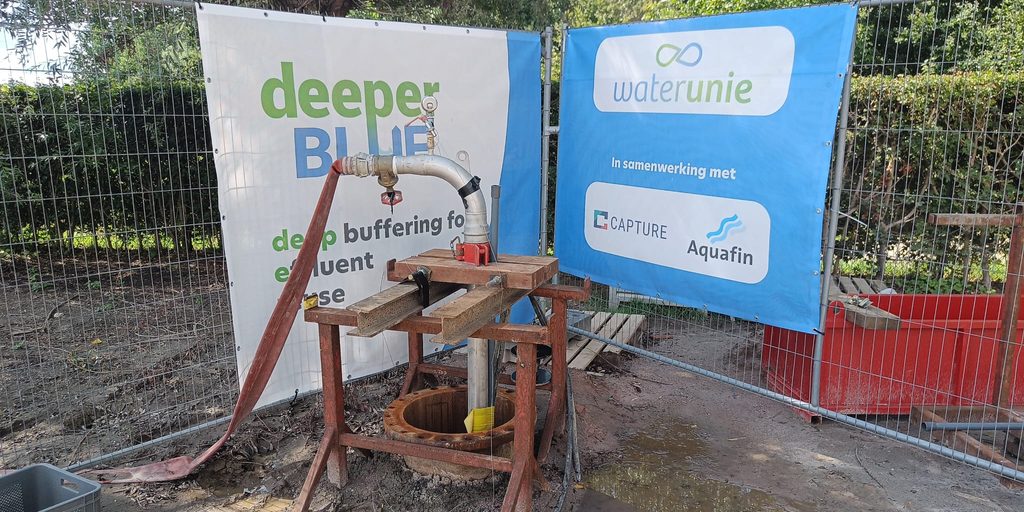Water companies Farys and De Watergroep successfully drilled a test well in the East Flemish city of Aalst intended to store 100 million litres of drinking water underground.
The companies are aiming to create a reserve of water to help Flanders get through the increasingly dry summers. Flemish groundwater is being rapidly depleted by increased urbanisation and water stress levels.
The two companies in Aquafin’s water treatment plans in Aalst drilled a deep hole into the ground.

Credit: Waterunie
With the help of their new joint venture, Waterunie, the water companies plan to pump large amounts of drinking water deep into the subsoil next year. The plan is to fill the well with water during the comparably wet autumn and winter, and draw from this large reserve during the dry summer months.
The well is 220 metres deep and tunnels into the rock layer of the Brabant Massif. This ancient rock is filled with small cracks, which are already filled with brackish water. Initial tests show that the rock can hold 100 million litres of drinking water. Pumping the clean water into the rock pushes away forms a bubble that pushes away the non-potable drinking water.
It is hoped that this reserve of water will be able to provide 3,000 families with clean drinking water during the dry season.
“We still let too much precious water go to waste in the wet seasons, when it is desperately needed for the increasingly dry months,” said Hans Gooseens, De Watergroep’s general manager. “With the underground water storage in Aalst, we are not only creating a drinking water reserve, we are also saving an enormous amount of space.”
Building reserves
Water companies are finding it increasingly difficult to meet the water needs of Flanders during the dry summer months. As such, it must innovate to ensure supply.
“We have experienced more frequent periods of drought in recent years, during which the flow of the Meuse decreased sharply in the summer, as did the supply from the Albert canal,” Farys spokesperson Bruno Pessendorffer, told De Tijd. “It is important to strengthen our security of supply by diversifying and building additional buffers.”
The water company official says that there are relatively few places to store large volumes of water due to the amount of high-density urban areas. It is also difficult to find appropriate locations for storing water underground. Conditions must be just right.
Related News
- The Mediterranean Sea is getting hotter and saltier
- Google data centre in Belgium the most 'water-hungry' in Europe
This means that the company must also find the right type of soil, as well as the right rock composition, so that when the water resurfaces later, it is perfectly drinkable. The water companies still disinfect the water after extracting it from the rock in a bid to ensure that it is potable.
While the well has already been drilled, Farys and De Watergroep must still await permits to be able pump water into the earth. The first tests will begin during the summer next year. The project is expected to cost €500,000. The Flemish Government will pay for the majority of this cost.

